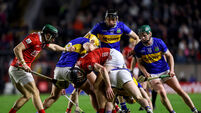Shi’ite leaders propose religious conservative PM
Ibrahim al-Jaafari, a religious Shi'ite and head of the Islamist Dawa Party, had faced competition from inside the alliance from former exile Ahmad Chalabi, once favoured by the US.
But Mr Chalabi withdrew as a candidate at a meeting in Baghdad and the alliance unanimously approved Mr Jaafari.














